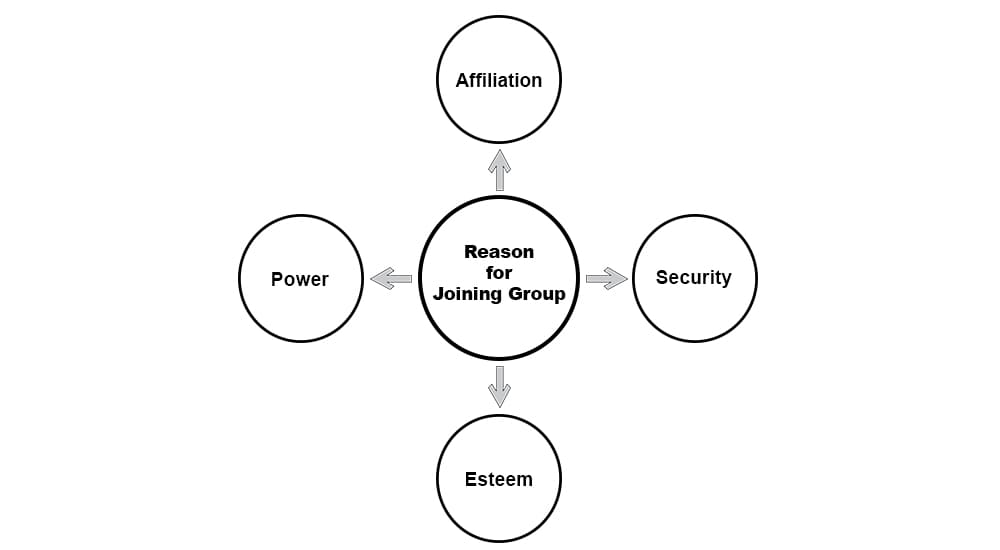Definition: A group is a union of two or more people who come together for a common interest, interaction, or to achieve a common objective. A group can be formal or informal, and every organization has these groups to achieve its goals.
Group Characteristics
- A group must have a minimum of two members.
- A group must have a common goal.
- A group can have a leader or manager to lead them to achieve the goal.
- A group can have a hierarchical structure.
- A group can have defined norms and procedures.
Types of Group
Groups can broadly be divided into two categories:
- Formal Group
- Informal Group
Formal Group
A formal group is deliberately created by an organization to achieve an objective. This group has defined criteria for members to join, has an operating procedure and structure, and is led by a leader. A formal group is also known as a planned group.
A formal group can be temporary or permanent. They are necessary for an organization to keep it functional.
Informal Group
Informal groups are groups formed by individuals when they communicate with one another. These groups are not created by organizations and work democratically.
People form these groups to solve their common issues or social needs; issues may or may not be related to work.
Functions of a Group
Some common group functions are:
- They help organizations achieve their goals and objectives
- They help solve organizational issues
- They create a healthy environment in an organization
- They help employees raise issues
- They motivate employees to perform better
Reasons for People Joining Group

A few common reasons for joining groups are given below.
- Affiliation: Affiliation is the most common reason for joining an informal group. People join because of common interests, friendships, common hobbies, backgrounds, etc.
- Security: This is the second most common reason to join a group. People feel secure in the company of like-minded people. They feel stronger, and it reduces the feeling of insecurity.
- Esteem: Joining a group lets members connect with other influential people in an organization. It helps increase self-esteem.
- Power: Joining an elite group provides members power. This power can be formal or informal.
Summary
Groups form when two or more people come together to achieve a common goal. The group can be created due to just an interaction or formally through procedures to help the organization resolve its issues or run its operations.
